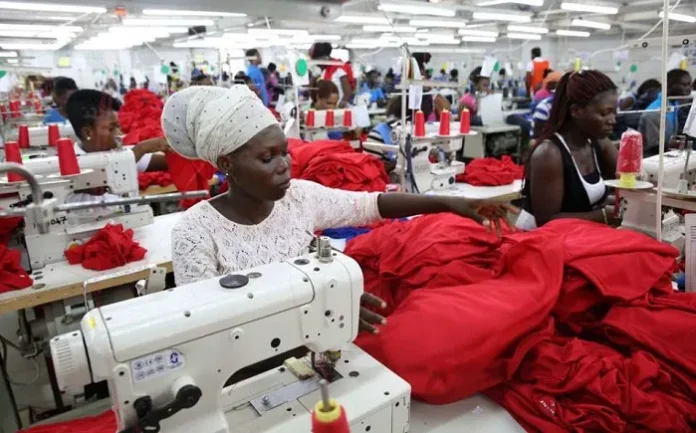A continental study released last week has positioned Ghana as a prime destination for Africa based investment funds, a development that could transform financing options for small and medium enterprises struggling to access affordable capital.
The 190 page report, titled “Study on Africa as a Jurisdiction for Domiciliation of Investment Vehicles,” revealed that 60 percent of all Africa focused investment funds are currently domiciled offshore, primarily in Europe and the Caribbean, draining billions in potential capital from the continent.
The study was released during a pan African webinar co-hosted by the Mennonite Economic Development Associates, or MEDA, and the Africa Impact Investing Group. Its findings suggest that redirecting those funds to African jurisdictions like Ghana could fuel industrial transformation across multiple sectors.
Dr. Dorothy Nyambi, President and CEO of MEDA, explained the challenge facing small businesses across Africa. “When investment vehicles are based outside Africa, SMEs lose out on the affordable financing they need to scale,” she said. “Local domiciliation can power the next generation of entrepreneurs from agribusiness to automotive assembly.”
The timing couldn’t be more critical for Ghana’s emerging automotive sector. Several global manufacturers including Volkswagen, Toyota, and Nissan have established assembly plants in Ghana alongside the local Kantanka Automobile Company, creating demand for locally produced components and services.
Yet most SMEs in Ghana’s automotive supply chain lack access to long term, low interest funding needed to modernize operations or meet international quality standards. Many local suppliers, garages, and component manufacturers find themselves caught in a financing gap that prevents growth despite rising market demand.
Maame Tutua Dadson of Stafford Law highlighted the predicament facing smaller enterprises. “They’re too large for microfinance but too small for big commercial loans,” she explained. “Many local automotive SMEs, especially those producing spare parts or offering digital mobility services, cannot access the credit they need to compete.”
The study argued that domiciling funds in Africa would expand financing for micro, small and medium sized enterprises, which account for around 80 percent of formal jobs in emerging markets but still face a $940 billion funding gap.
By establishing stronger regulatory and legal frameworks for fund domiciliation, Ghana could attract impact investment funds focused specifically on industrial value chains. These could include auto parts manufacturing, logistics operations, battery recycling facilities, and after sales services that support the growing vehicle assembly sector.
The report launches a three year initiative aimed at reforming Africa’s investment policies, with Ghana identified as one of the key focus countries. The goal involves making local domiciles more attractive to global and African investors while mobilizing domestic capital for productive sectors like manufacturing and mobility services.
Diana Smallridge at Momentus Global said ongoing consultations with finance ministries and investment regulators aim to create clear, investor friendly policies. “The more capital we retain in Africa, the more we can channel into growth sectors that create jobs,” she noted. “Ghana’s automotive SMEs fit that profile perfectly.”
For Ghana, improving its investment environment aligns with its Automotive Development Policy launched in 2019, which seeks to promote local component manufacturing and reduce dependency on imports. The Ghana automobile market is expected to reach $2.02 billion in 2025 and grow at a CAGR of 9.22 percent to reach $3.14 billion by 2030.
Access to dedicated SME financing could enable small firms to produce car seats, electrical systems, tires, and lubricants locally, feeding into assembly plants operated by brands such as Toyota, Volkswagen, Nissan, Suzuki, KIA, Mahindra and Kantanka.
Kofi Fynn, CEO of Petra Trust, urged a collaborative approach to building Ghana’s financial ecosystem. “We must align policy with industry needs,” he said. “With better fund domiciliation rules and investment incentives, Ghana can become both an automotive and financial hub for West Africa.”
The African Crowdfunding Association also announced plans to advocate for updated crowdfunding regulations during the webinar. This would give smaller automotive startups and service providers access to digital financing platforms, complementing traditional investment vehicles.
Such platforms could provide innovative capital pathways for SMEs developing car diagnostics tools, electric vehicle conversion kits, or green logistics solutions. The combination of traditional fund structures and digital crowdfunding could address financing needs across the entire SME spectrum.
Industry analysts believe such reforms could help bridge Ghana’s industrial financing gap, where many SMEs operate below capacity despite rising regional demand for vehicles and spare parts. The current shortage of locally manufactured components means assembly plants still rely heavily on imported parts, limiting job creation and value addition.
Dr. Nyambi emphasized the urgency of reform. “If Ghana aligns its regulatory systems and strengthens fund management capacity, the flow of capital into SMEs will increase tenfold,” she said. “That is how local businesses, especially in manufacturing and mobility, will drive Africa’s economic future.”
The study examined 13 African jurisdictions, analyzing factors that influence where investors choose to domicile their investment vehicles. It identified regulatory clarity, legal frameworks, tax incentives, and skilled fund management capacity as key determinants of success.
For Ghana to capitalize on this opportunity, experts say the country must streamline regulations governing investment funds, strengthen its securities and exchange commission oversight, and develop local expertise in fund management and compliance.
As Africa’s economies diversify beyond traditional commodities, Ghana faces a twin opportunity. By reforming investment policy while empowering SME driven industries like automotive manufacturing, the country could position itself as both a production base and a continental hub for investment and innovation.
The question now is whether Ghana’s policymakers will act swiftly enough to capture the capital currently flowing to offshore jurisdictions, and channel it toward the small businesses that form the backbone of industrial growth.
Source: newsghana.com.gh











